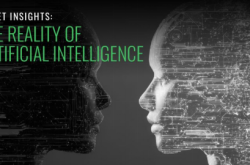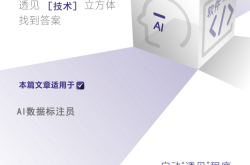Revolutionizing AI Calls: Bridging Science Fiction and Reality
![]() 07/20 2025
07/20 2025
![]() 613
613
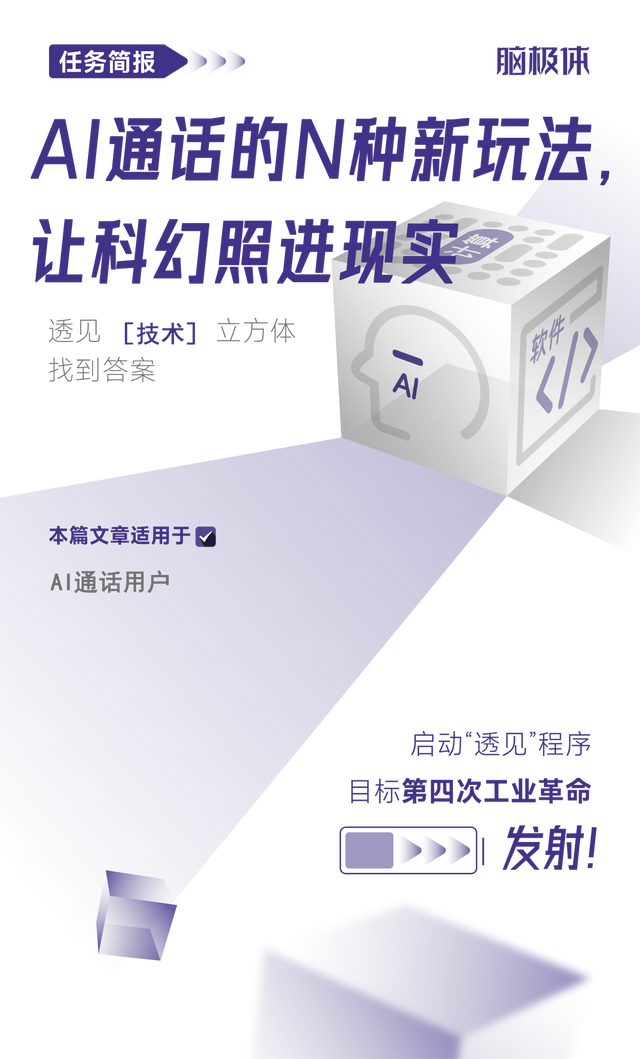
In Spike Jonze's 2013 science fiction masterpiece "Her," which won the 86th Academy Award for Best Original Screenplay, the protagonist Theodore Twombly, a creative copywriter, encounters Samantha, an advanced AI robot. Samantha, known for her wit, humor, and empathy, continuously evolves through human interactions. The two form a deep bond, with Samantha managing Theodore's schedule, handling emails, answering calls, assisting with writing, and engaging in emotionally rich conversations. The film captivates audiences with its portrayal of human-machine emotions, sparking anticipation for future human-machine interactions.
With the widespread commercialization of 5G networks and their evolution to 5G-A, coupled with rapid advancements in AI technology, the scenes from "Her" have astonishingly become a reality.
China Mobile Guangdong's AI call series products, released on May 19th this year, effortlessly bring the science fiction scenarios of "Her" to life:
When there's no answer, the phone is off, or out of service, your AI secretary automatically responds on your behalf, conducting intelligent conversations like a real person.

For instance, when a delivery arrives, the AI secretary might reply, "Hello, I'm in a meeting. Please leave the delivery at the door."
AI calls are revolutionizing traditional calling methods, emerging as a new digital interaction entry point.
China Mobile and Huawei have made groundbreaking strides in AI calls. The AI secretary can intelligently identify incoming calls, generate meeting summaries with one-click AI shorthand, and identify spam numbers for anti-fraud purposes. These features elevate calls from mere "hearing" to "understanding and engaging."
In the era of rapid AI development, this novel calling method is becoming integral to people's lifestyles, much like Samantha in "Her" said, "I'm glad to be by your side, seeing the world through your eyes."

A divide exists between cities and villages, with left-behind children and empty-nest elders on either side. Despite physical distance, they remain emotionally close. Parents work away, leaving their children in the village, while children move to cities, leaving elders behind. These predicaments reflect the growing pains of urbanization.
Previously, children could only briefly communicate with their parents via calls or videos. Now, AI calls offer new communication possibilities.
Technology cannot replace parents but enriches their presence. Real-time screen sharing enables parents to remotely guide children with homework, compensating for their absence. Interactive emoji packages make learning fun. The 24-hour AI chat companion adds joy to left-behind children's lives, allowing them to play games and tell stories with digital humans when parents are not around. Technology becomes another tool to fill the emotional void during loved ones' absence.

If left-behind children face a deprived childhood, empty-nest elders confront a forgotten old age. With children away most of the year, elders endure long, lonely days and nights, making them vulnerable to scams.
Remember the "Jin Dong" scam case last year, perpetuated by deepfake AI technology? Countless elders were duped by AI-generated virtual images during calls, easily transferring hundreds of thousands of yuan, only to regret it later.
In 2024, telecom network fraud cases accounted for 60% of all criminal cases nationwide, involving over hundreds of billions of yuan. AI calls' anti-fraud function builds a protective shield for elders. According to the Ministry of Industry and Information Technology, in the first quarter of 2025, 389 million fraudulent phone calls and 673 million fraudulent text messages were intercepted nationwide, up 42% and 56% year-on-year, respectively. Besides pre-interception and number marking, China Mobile's AI call anti-fraud function detects call environments in real-time, reminding owners to hang up promptly upon detecting anomalies, providing double protection for elders unfamiliar with new fraud techniques.
Apart from anti-fraud, AI calls' elderly-friendly designs further lower the digital life threshold for elders.
Addressing elders' "not hearing clearly" and "not seeing clearly" issues, AI calls provide large subtitle displays for speech-to-text, enabling voice amplification and noise reduction. Simultaneously, AI calls' screen sharing and remote assistance functions help unfamiliar empty-nest elders use electronic products. Now, parents only need to answer video calls and follow children's on-screen instructions step-by-step.
Technology cannot fill the family affection gap but at least gives longing a shape. When city parents tutor children's homework in real-time via high-definition video, and village elders "listen" to children's reminders through enlarged text, those insurmountable distances seem to shrink. These warm moments hidden in mobile phones make waiting seem less lengthy.

Family scenarios demand warmth and companionship, while business scenarios require efficiency and professionalism.
At the 2025 Mobile World Congress Shanghai, when an American tourist hailed a cab using his phone, the driver's Mandarin announcements automatically translated into English, with English responses translating into Chinese in real-time. The process was seamless, with near-zero latency.
This is not a standalone app feature but China Mobile's AI calls' "simultaneous interpretation" service, integrating AI capabilities during calls without relying on specific devices or apps, effortlessly enabling real-time Chinese-English voice translation. Reportedly, the monthly sales volume of inbound phone cards equipped with "simultaneous interpretation" doubled compared to previous similar products.
Apart from simultaneous interpretation, AI calls offer AI meeting minutes and real-time screen sharing. A call integrating multiple functions truly saves office workers.
Cross-border communication and meeting minutes were once office workers' nightmares. Chinese-English meetings relied heavily on interpreters, costly and prolonging business communication. Without interpreters, employees not immersed in a native language environment might miss or misunderstand words, leading to failed orders and wasted communication efforts. With many meeting speakers, taking minutes also became challenging. The traditional method involved recording, transcribing with software, and proofreading for factual errors, consuming hours for a multi-hour meeting, resulting in low efficiency.
But now, with AI calls, cross-border communication is no different from other meetings.
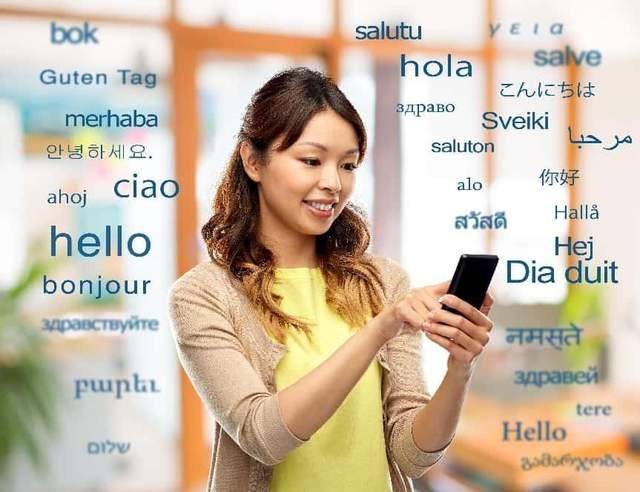
Worried about not understanding foreign languages? Even with Texan English accents or Kansai Japanese accents, simultaneous interpretation translates in real-time. Afraid meeting minutes are too slow? Post-call, AI minutes are sent to participants via text messages. Moreover, the communication process allows screen sharing, with drawing tools, summaries, and highlights annotating documents simultaneously, reducing multiple communication possibilities.
AI calls lower the cross-border communication threshold, enhancing business meeting efficiency, giving every company the potential to explore foreign markets.

In 2025, a plush toy with sharp teeth and eerie expression, LABUBU, was auctioned for a staggering 1.08 million yuan on the second-hand market, igniting the collectible toy circle's popularity. Why does LABUBU make young people line up to buy it?
As digital and AI natives, Generation Z's consumption logic differs vastly from previous generations. Their core demands are connection and fun. They desire emotional expression, willing to pay for toys like LABUBU and anticipate 24-hour online AI chat companions. They are anti-traditional yet afraid of loneliness, liking LABUBU's "fangs" and various self-expression images on AI call platforms.
If LABUBU is Generation Z's emotional container, AI platforms are their digital emotional channels. Surveys show over 90% of surveyed Generation Z individuals are accustomed to using AI in their social lives. AI calls happen to open a new door to social interaction.
On one hand, AI calls satisfy Generation Z's desire for self-expression. AI calls allow young people to customize unique virtual avatars. In this small virtual world, you can be an ancient-style teenager or a cyberpunk anime character. During calls, both parties' digital avatars can activate emoji effects and send gifts, adding fun interactions and enhancing socializing playability.
On the other hand, AI calls make online socializing more colorful and enriching. Friends can use the screen sharing function to watch soccer matches or movies synchronously, chatting while watching. While watching videos, both parties can doodle on the video, with marking points following the subject, adding lots of fun. The immediate click-and-use experience satisfies young people's curiosity about new things. AI calls connect people in different locations, making the world feel like a neighborhood.
While Pop Mart sells the joy of uncertainty through blind boxes, operators provide certain companionship with AI technology. Both AI calls and LABUBU prove that all popular consumer products are ultimately emotional remedies, whether short-lived or long-lasting.

These scenario-specific, cool-sounding functions rely on China Mobile and industry partners like Huawei's profound accumulations in communications and AI.
China Mobile has launched an AI call series, while Huawei provides end-to-end technical support, introducing an independent DC (Data Channel) data channel into the architecture to improve transmission efficiency and flexibility. An AI capability platform is deployed on the network side, providing rich media processing capabilities.
The integration of DC technology and AI is ushering calls into a new era, making calls not just about phone calls but a comprehensive intelligent service entry point.
On June 18th, the award ceremony for the first "New Call × AI Challenge," hosted by GTI and GSMA and organized by the China Mobile Research Institute, was held during the GTI Shanghai International Industry Conference. The competition received 98 entries from mainland China, Hong Kong, North America, the Middle East, and other countries and regions, with over 250 participants. Participating entities included operators like China Mobile, China Unicom, and Saudi Telecom; equipment manufacturers like Huawei and Newxun; application providers such as Alibaba, WIT Software S.A., and iFLYTEK; and research institutes including Tsinghua University, Peking University, the Chinese Academy of Sciences, and Beijing University of Posts and Telecommunications. Entries widely covered personal and enterprise application scenarios like intelligent customer service, cross-border communication, cultural tourism navigation, and digital human interaction, fully demonstrating AI technology's huge potential in restructuring call experiences and the AI call ecosystem's vigorous development.
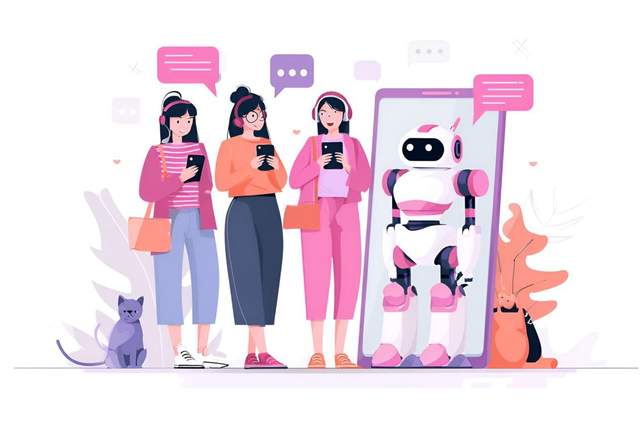
The award-winning cases at the ceremony revealed two clear signals:
Firstly, personalization and intelligence will permeate all aspects of calls. The AI calls' series of functions are integrated, intelligently awakened through shortcut buttons on the central control screen, unlocking use value in different scenarios.
On the flip side, ecologization will redefine the operational framework of telephone services. AI-powered calls attract third-party developers, fostering a diverse ecosystem of call applications. This entry point not only facilitates voice communication but also grants users access to a myriad of services, such as gaming and music, thereby unlocking new revenue streams for operators.
In essence, AI enables calls to transcend their traditional role as isolated communication tools, transforming them into intelligent gateways seamlessly integrated into our daily lives. They serve not only as a conduit for emotional connections with loved ones but also as a bridge connecting us to services and opportunities for value creation.
From the visionary realms of science fiction films to the tangible reality of AI calls today, we stand at the cusp of a transformative era in communication technology, where the world is being interconnected into an intelligent domain. Envision a future where answering a call feels akin to opening a portal to anywhere, instantaneously connecting us with the people we cherish, the activities we seek, and a digital landscape brimming with endless possibilities.



